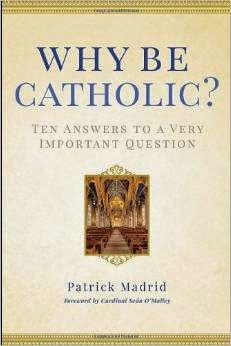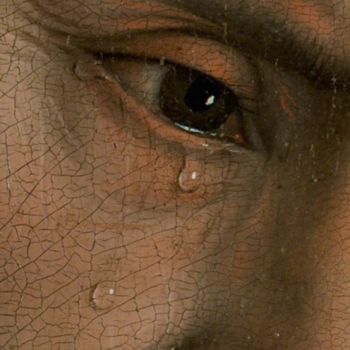 I recently read through Patick Madid’s latest book Why Be Catholic. I was interested in the book, because it’s a question I feel I myself am always having to defend. Ever since I choose to join the Catholic Church there has been a non-stop sting of questions that all boil down to answering “Why be Catholic?” Madrid’s book tries to get the conversation going… that is where it really shines. In a mere 200 pages Madrid raises what I would consider to be the most compelling reasons for one to join the Church. It introduces concepts like “sacraments” and “tradition” in a way that someone who was raised in an evangelical church will find accessible and thought provoking.
I recently read through Patick Madid’s latest book Why Be Catholic. I was interested in the book, because it’s a question I feel I myself am always having to defend. Ever since I choose to join the Catholic Church there has been a non-stop sting of questions that all boil down to answering “Why be Catholic?” Madrid’s book tries to get the conversation going… that is where it really shines. In a mere 200 pages Madrid raises what I would consider to be the most compelling reasons for one to join the Church. It introduces concepts like “sacraments” and “tradition” in a way that someone who was raised in an evangelical church will find accessible and thought provoking.
I really loved some of the questions Madrid poses. One example is the question, “what do you think happened between the time of the apostles and the reformation?” These are great questions that one can use to start conversations about Church history and Tradition. I think that going through and highlighting these conversation starters is one of the best things I personally got out of the book.
Madrid has a very accessible style which can be both a blessing and a curse. He presents things through analogies and truisms, rarely digging deep into the issues. It presents the mysteries of the Church in a way that is easily accessible, bringing in a lot of real world analogies to help theological concepts make sense to people. These examples are great, but for people like me they fall flat. I don’t want to understand the church through analogies… I want to know the real reasons WHY the Church developed doctrine the way they did. You will need to discern if you’re the kind of person who wants the philosophy and theology behind Church teaching to be explained, or simply to have theology presented in a way that makes sense to you in your everyday life. This book mostly appeals to people in the latter category.
One thing the book truly fails to do is tackle these questions in a way that would be convincing for a non-Christian person. Madrid assumes his readers care about the Bible, and believes it to be true. Atheists or non-Christians who read this book will find little in it that is very convincing. It really is a book geared toward conservative Protestants, which makes sense. It is conservative Protestants that Madrid fought against when formulating his own faith in his youth, and it is against them that much of his career has been aimed.
If I were to summarize the book, I would say that it functions as a great conversation starter with evangelicals, but once the conversation gets under way it provides little more that sound-bite theology. It’s a great book to read, but the conversation needs to go further.












